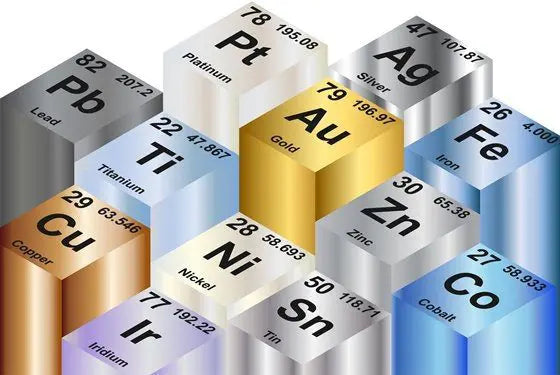
Metallic Marvels: Unveiling Nature's Rust-Resistant Wonders
Compartir
Certain metals and alloys are naturally resistant to rust or corrosion due to their inherent properties. These metals form protective oxide layers on their surfaces that prevent further corrosion. Here are some examples of metals that are naturally resistant to rust: ![]()
1. Stainless Steel: Stainless steel is perhaps the most well-known rust-resistant metal. It contains chromium, which reacts with oxygen to form a thin, invisible, and protective chromium oxide layer that prevents rusting.
2. Aluminum: Aluminum naturally forms a thin oxide layer when exposed to air, which acts as a barrier against further corrosion. This oxide layer is why aluminum doesn't rust in the same way as iron or steel.
3. Copper: Copper forms a protective layer of copper oxide, often with a greenish color, which prevents further corrosion. This patina is why copper roofs and statues don't rust.
4. Brass: Brass is an alloy of copper and zinc. Like copper, it forms a protective oxide layer that prevents rust. Brass is often used for decorative items and musical instruments.
5. Bronze: Bronze is another copper alloy, typically made with tin. It develops a protective patina over time, which gives it a unique appearance and protects against further corrosion.
6. Titanium: Titanium is highly resistant to corrosion due to its ability to form a stable oxide layer. This property makes it valuable in various applications, including aerospace and medical implants.
7. Galvanized Steel: While steel is not naturally rust-resistant, it can be made rust-resistant through a process called galvanization. Galvanized steel is coated with a layer of zinc, which corrodes sacrificially, protecting the underlying steel.
8. Weathering Steel (Corten Steel): Weathering steel, often referred to as Corten steel, contains small amounts of copper, chromium, and nickel. It develops a rust-like appearance over time, but this rust layer actually protects the steel beneath from further corrosion.
9. Platinum: Platinum is highly resistant to corrosion and oxidation. It remains shiny and unreactive even in harsh environments.
10. Gold: Gold is virtually immune to rust or corrosion. It doesn't react with oxygen or moisture, making it one of the most stable and unreactive metals.
![]()
It's important to note that while these metals are more resistant to rust than others, no metal is entirely immune to corrosion in all conditions. Factors like environmental conditions, exposure to chemicals, and mechanical stress can still lead to corrosion in these metals, albeit at a slower rate or under specific circumstances. Proper maintenance and care are essential for preserving the rust resistance of these materials.
